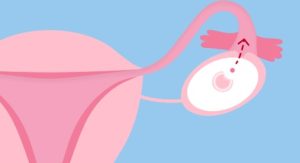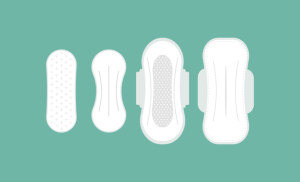Have you ever noticed that your acne has a mind of its own?
One day your skin might be clear, and the next, you wake up with a whole new set of breakouts. It’s almost as if your pimples have an agenda of their own.
The underlying reason may be hormonal imbalance. Hormonal acne—and its causes, treatments, and prevention strategies—are as complex as it is common.
To get to the root of the issue and break out of this cycle (literally), let’s dive into the details of hormonal acne, its treatments and how you can prevent it from ruining your next big day!

What is Hormonal Acne?
If you struggle with breakouts, you’ve probably heard of hormonal acne. But what exactly is it and how can you tell if it’s the culprit behind your blemishes?
Hormonal acne is a type of acne that appears due to fluctuations in hormones. It usually develops during puberty, pregnancy, or menopause when hormones are highly active.
The increased hormone levels can cause the sebaceous glands in your skin to produce too much oil and clog up your pores with bacteria. This leads to breakouts on areas such as the chin, jawline, and forehead—areas where sebaceous glands are most concentrated.
It’s important to understand the signs of hormonal acne so that you can determine if that’s the real reason behind your breakouts and how best to treat it. If you’re experiencing more severe breakouts than usual, or if there are clusters of red bumps along your jawline or chin, chances are you may be dealing with hormonal acne.
What Are the Causes of Hormonal Acne?
You probably know that hormonal acne is caused by an imbalance in your body’s hormones, but you may not know exactly how this works. Let’s break it down – hormonal acne is linked to higher levels of androgens, which are the male sex hormones present in both men and women. These higher hormone levels can cause your body to produce more sebum (oil) than usual, leading to blocked pores and breakouts.
In addition to this, hormonal imbalances can also be caused by certain medications like birth control pills or steroids, high-stress levels, PCOS (polycystic ovary syndrome), and/or an unhealthy diet that’s low in essential vitamins and minerals. All of these factors can lead to the development of hormonal acne.
If you’re struggling with acne and you suspect it might be related to a hormonal imbalance, it’s best to speak with your doctor for a personalized advice. They can help you understand the root cause of your breakouts so you can take steps towards re-balancing your hormones and getting healthy from the inside out.
How Can Hormonal Acne Be Treated?
To effectively treat hormonal acne, you need to start by understanding what’s causing the problem in the first place. Once you know, you can take steps to prevent it from happening again, and get rid of the pimples that are currently causing you grief.
- Diet
You might not know this already but diet can affect your hormones. If a big part of your diet is unhealthy fats and processed foods, this could contribute to a hormone imbalance which leads to hormonal acne. Eating healthy fats and natural foods (like fresh fruits and vegetables) helps restore balance and give your skin the nourishment it needs to heal.
- Skincare Routine
Having an effective skincare routine is essential for keeping your skin healthy and preventing breakouts in the future. Start by washing your face with a mild cleanser twice a day, then use a non-comedogenic moisturizer to keep it hydrated.
You should also use products specifically formulated for keeping oily skin in check—look for ingredients like zinc oxide or sulfur for maximum effectiveness. Finally, if you want extra protection from environmental toxins, use SPF so that your skin won’t be exposed to damaging UV rays from the sun.
Treating hormonal acne isn’t always easy, but if you understand what causes it and learn how to keep it under control through diet, skincare products, stress management techniques, and more—you’ll be able to keep breakouts at bay!
What Are the Best Products for Treating Hormonal Acne?
When it comes to treating hormonal acne, choosing the right skincare products is essential. Here are some of the best products for treating hormonal acne:
- Cleansers
Cleansing your skin gently and regularly using a mild, non-comedogenic cleanser is key. Look for ingredients like salicylic acid, which helps to remove oils and impurities from the skin, as well as glycolic acid which can help reduce breakouts.
- Moisturizers
Moisturizing with oil-free formulas can help keep your skin hydrated without clogging pores. Ingredients like Aloe Vera, hyaluronic acid, and ceramides are great at calming inflammation and locking in moisture.
- Spot Treatments
Spot treatments containing ingredients like sulfur or benzoyl peroxide can help to reduce inflammation and kill any bacteria that may be causing the breakouts.
- Sunscreen
Sun protection is an important part of any skincare routine, especially when it comes to treating acne. Look for a broad-spectrum sunscreen with SPF 30 or higher that won’t clog pores or irritate your skin.
How Can I Prevent Hormonal Acne?
If you’re looking for ways to prevent hormonal acne, here are some tips that can help:
- Stay Hydrated
Staying well-hydrated can help to flush out toxins from your body, allowing your skin to better fight off any bacteria. To get the recommended amount of water, try carrying a reusable water bottle with you and aim for about 8 glasses a day.
- Increase Your Intake of Omega-3s
Omega-3 fatty acids have anti-inflammatory properties and have been linked to improved skin health. You can increase your intake of omega-3s by including fatty fish in your diet such as salmon or mackerel or taking a supplement if needed.
- Reduce Stress
Stress has been linked to worsening acne symptoms, so taking steps to reduce your stress levels can help. Try meditation, yoga, or spending more time outside in nature to reduce the effects of stress on your skin.
- Use an Acne Cleanser with Salicylic Acid
Salicylic acid is a common ingredient used in many acne cleansers that break down the bonds between dead skin cells and unclog pores. This can prevent dirt and bacteria from getting trapped inside your pores.
- Use Noncomedogenic Products
Noncomedogenic products are formulated so as not to clog pores and may be better suited for people who are prone to hormonal acne. Make sure to check the labels of the products you are using and opt for those that are labeled “noncomedogenic” or “oil-free”.
FAQs About Hormonal Acne
If you’re someone who deals with hormonal acne, you probably have a lot of questions. Here are some quick answers to a few of the most common ones:
Is hormonal acne caused by hormones?
Yes! Hormonal acne is caused by an imbalance in your hormones, specifically, high levels of androgens like testosterone can cause an increase in oil production. This oil leads to clogged pores and inflammation that results in acne.
How can I treat hormonal acne?
The best way to treat hormonal acne is to find out which hormone is causing the imbalance, either through a blood test or a saliva test. Depending on what’s causing the imbalance, your doctor may recommend medication to help balance hormone levels or suggest lifestyle changes like getting more exercise or reducing stress levels.
You may also need to make some changes to your skincare routine, like using gentler products or switching up your cleansers and moisturizers.
How can I prevent hormonal acne?
The best way to prevent hormonal acne is by keeping your hormones balanced and under control. This includes getting regular exercise, reducing stress levels, and following a healthy diet that’s low in sugar and processed foods and high in fruits, veggies, complex carbohydrates, and healthy proteins. Make sure you’re also drinking plenty of water each day—it helps keep skin hydrated and reduces breakouts.
All in all, hormonal acne is common, and it can be a challenge to treat. Understanding the triggers and lifestyle changes that can reduce the symptoms of hormonal acne can help you manage your skin better and reduce the appearance of blemishes.
Lastly, if you struggle with persistent hormonal acne, it’s important to talk to your doctor. Getting the right treatment and medication is the best way to manage the condition.
Indeed, with the right combination of lifestyle changes, diet, and medications, you can keep your hormonal acne in check and start feeling more confident in your skin.







